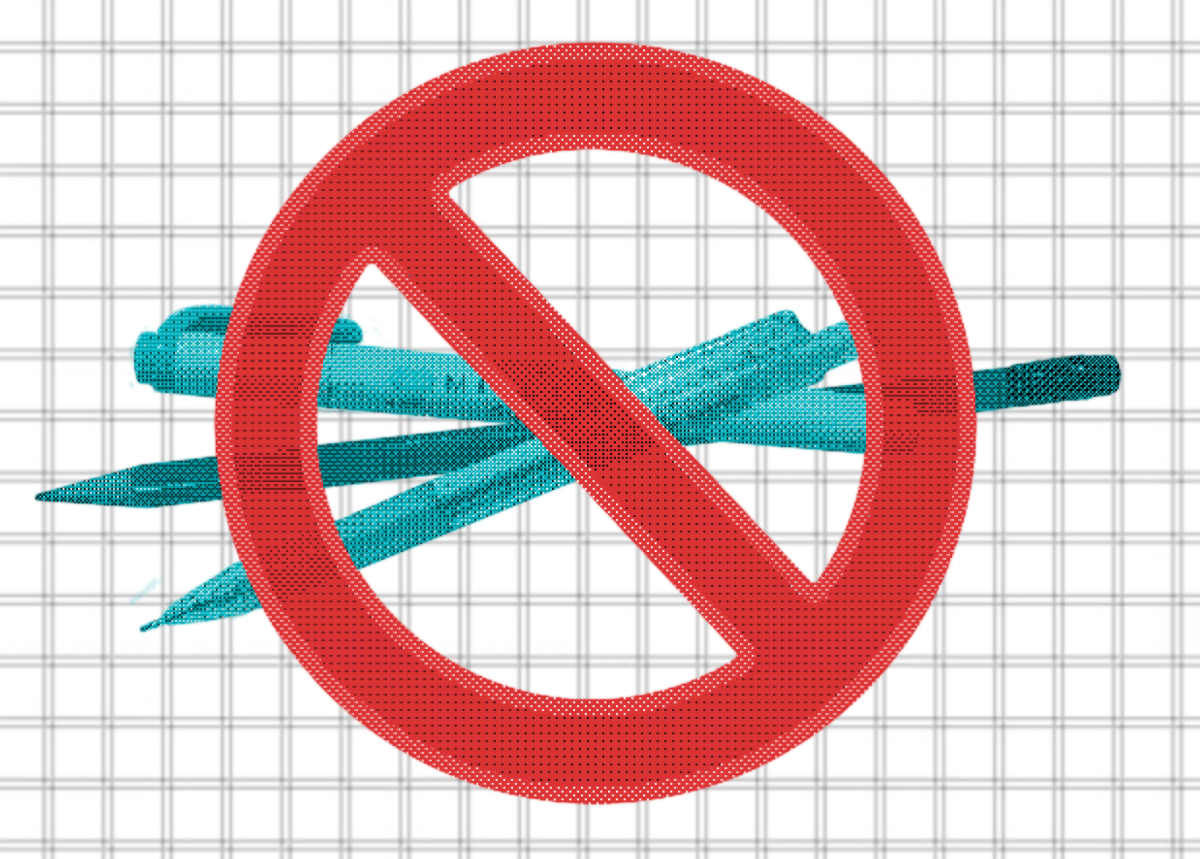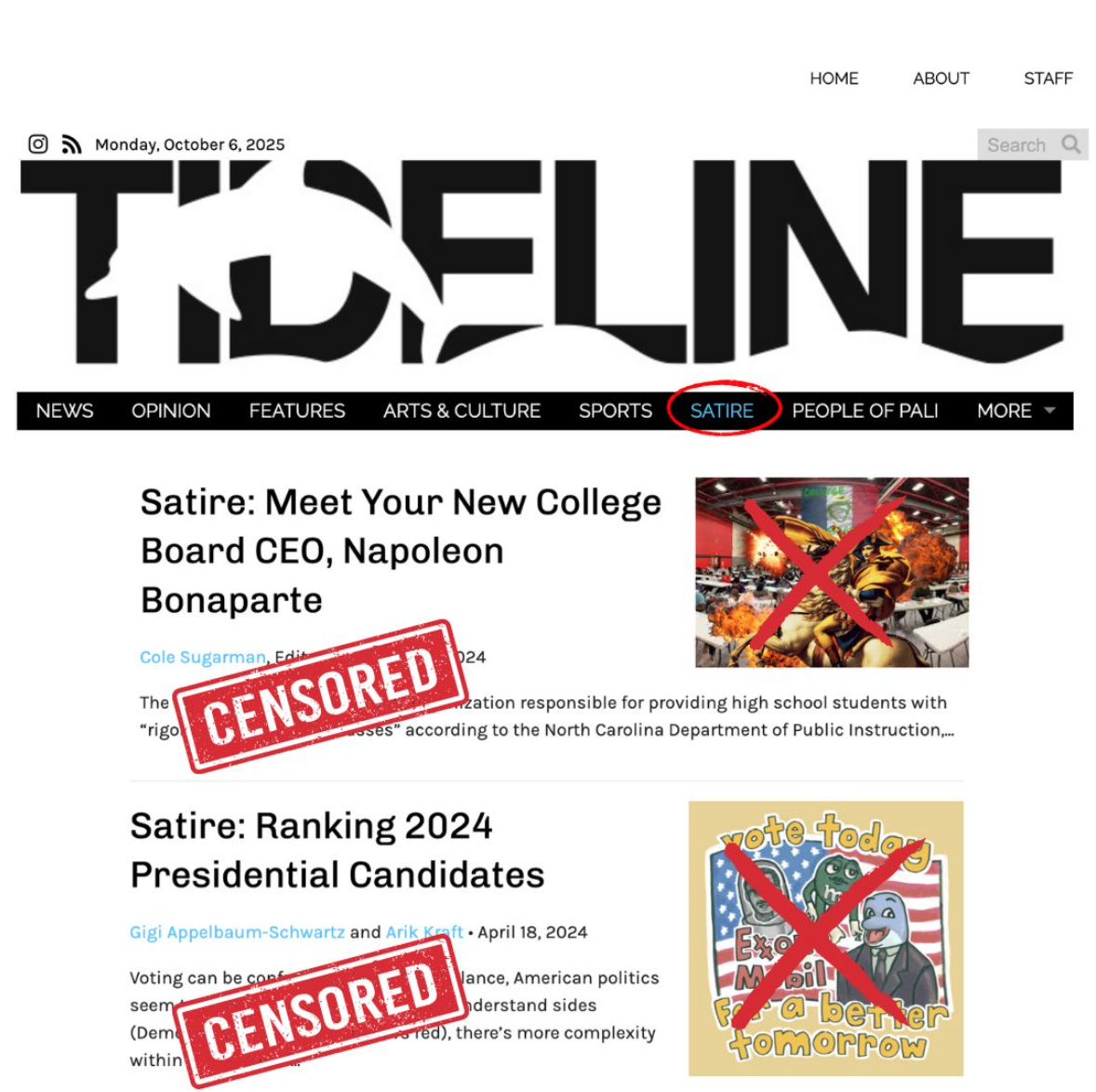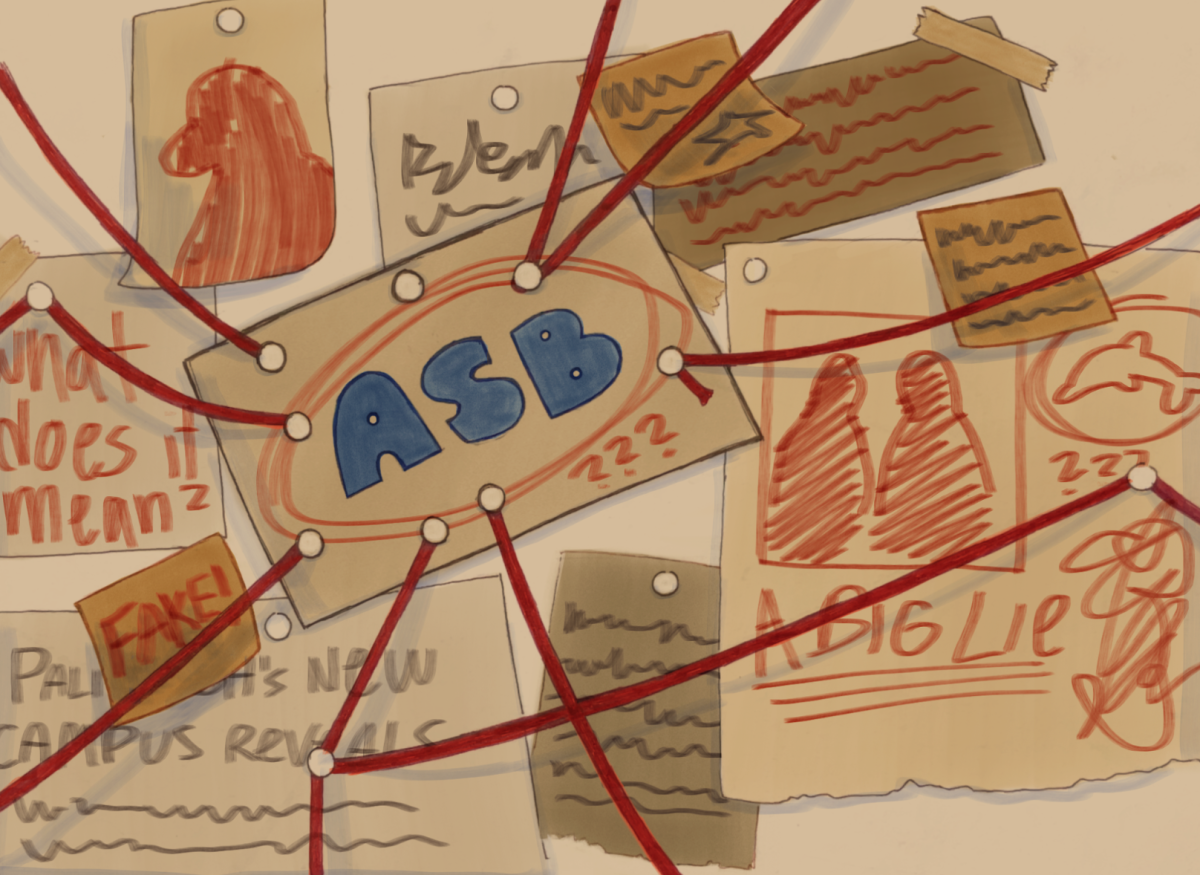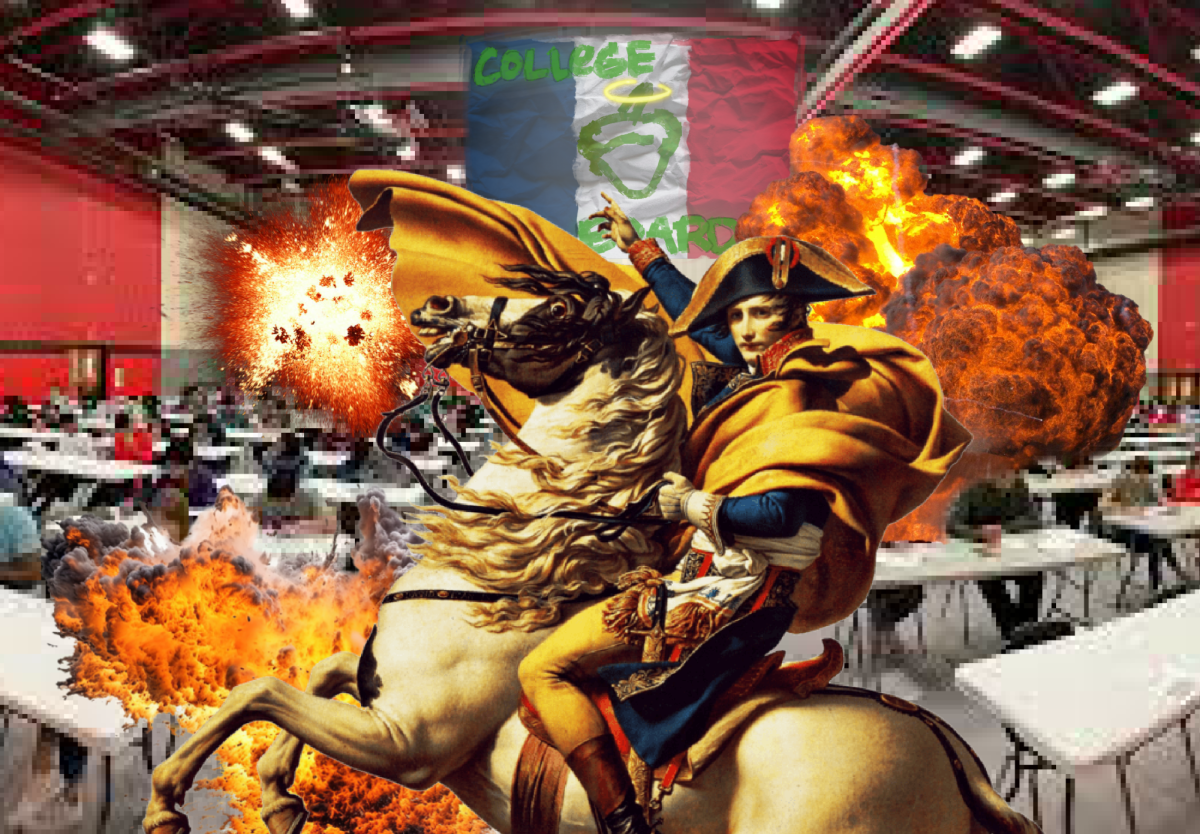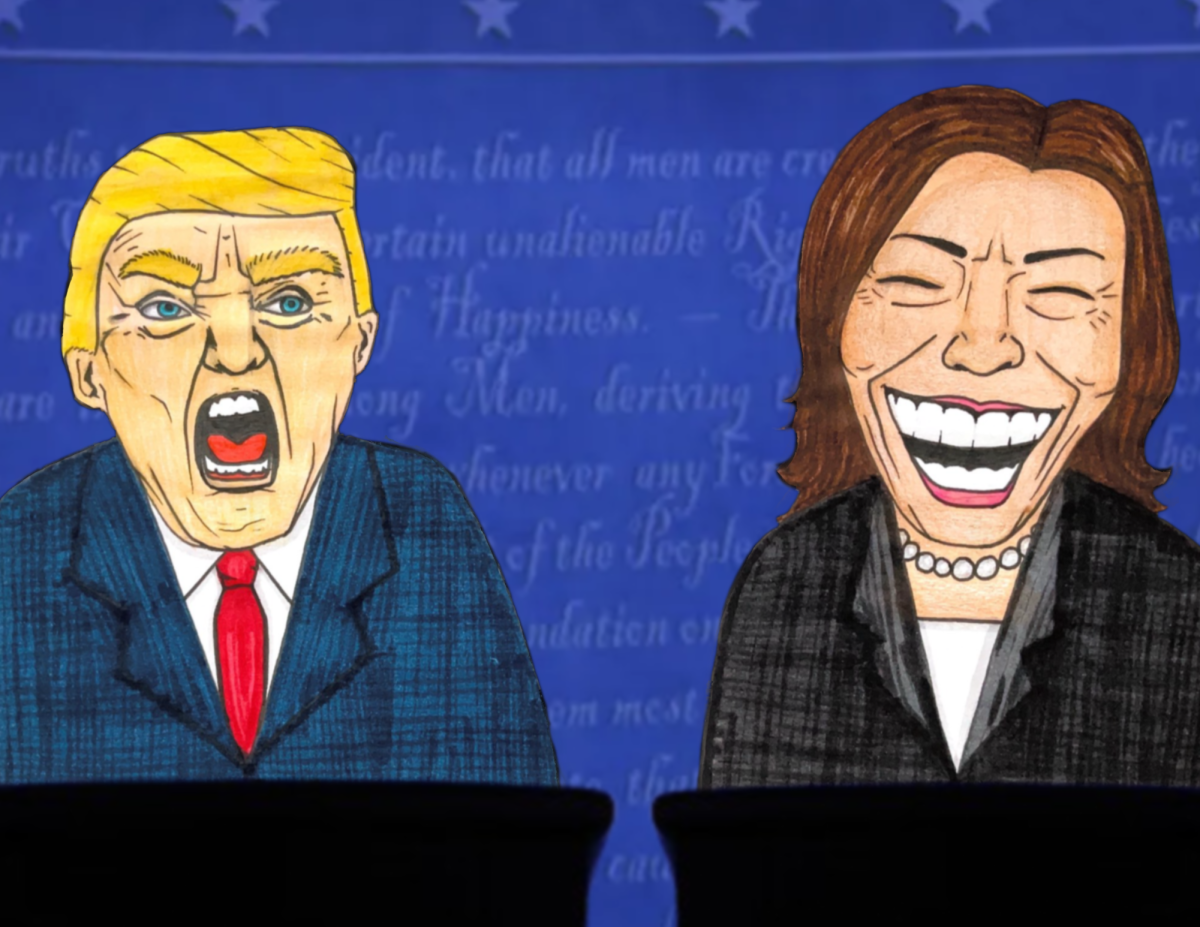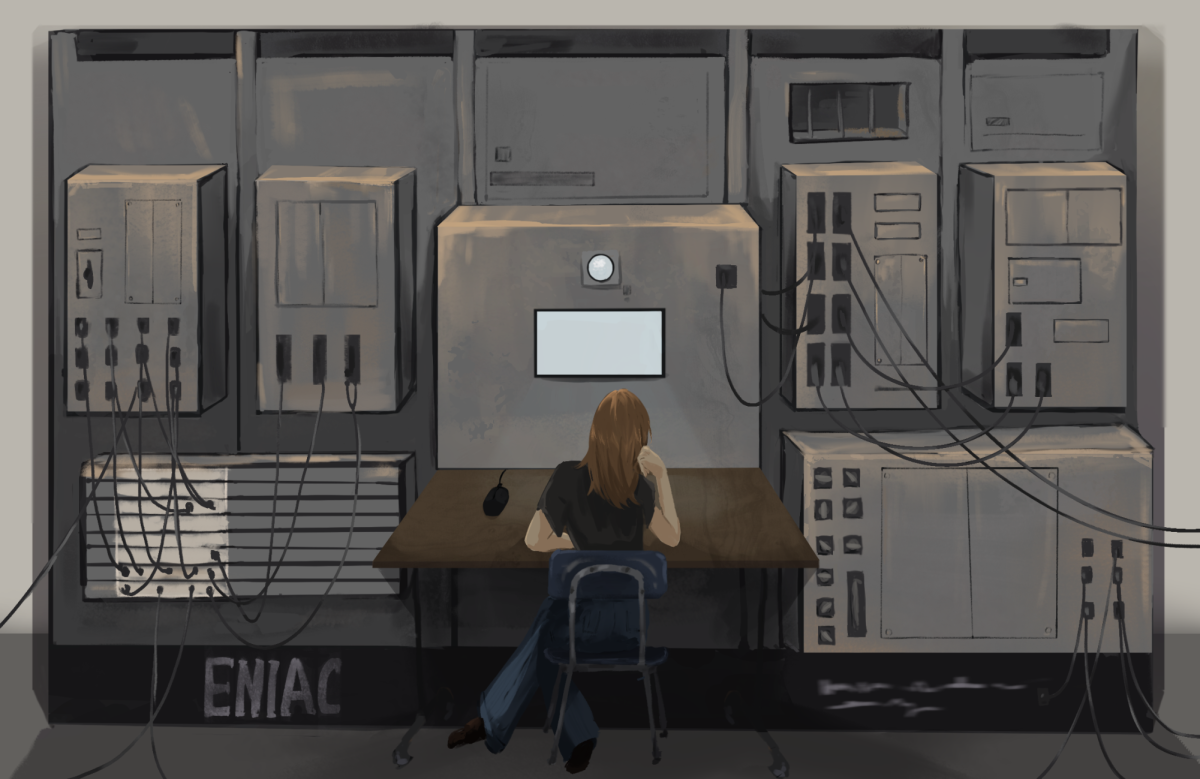The abandoned Sears building that Pali High administrators call “Pali South” resembled a typical high school – ignoring its doorlessness, paper-thin walls and lack of any space whatsoever – until the administration’s most recent overhaul, when No. 2 Pencils were finally banned not only during classes but campus-wide.
The ban followed Pali’s recent action against phones – which were usurped as the administration’s “No. 1 enemy” by No. 2 pencils.
Doodling and paper games like Hangman and Tik-Tok-Toe were the primary concerns of Pali administration because of their propensity for fun, according to Pali’s Principal and Executive Director Dr. Pamela Magee.
Teenagers are especially susceptible to the addictive qualities of penciling because of their developing brains. The average teenager spends an average of seven hours a day holding pencils.
“Students text each other in class via paper airplanes and post doodles of themselves on Instagraphite and Tik-Tok-Toe. This is the issue Pali admin must focus on solving,” Magee said while standing in front of a classroom with no doors, windows, desks, chairs, textbooks, school-provided computers, decorations, sufficient soundproofing or ceiling.
“Teens are especially susceptible to the dangers of addiction from doodling, socializing, technology use, playing sports, touching grass and much, much more,” a Pali Physical Education (PE) teacher said. “That’s why pencils in school should be a no-no, and why we in the PE department absolutely refuse to allow kids to exercise.”
When explaining her decision to ban only No. 2 pencils at a Pali board meeting, Pali’s Vice Assistant Secretary for Addiction Management Michelle Obama talked about the disproportionate amount of addictiveness of “the forbidden pencil” compared to other writing tools.
“The scent of the lead from pencils, specifically Ticonderoga No. 2s, have always had an addictive effect,” Obama said. “Just like we completely ruined school lunches and the S-tier coffee cake by making them healthy, we must now restrict the use of No. 2 pencils.”
Students, disturbed by the changes to Pali’s pencil policy, recently began forming advocacy groups to bring back pencils, including the Annoying Student Board (ASB) and Fun Students for Addiction (FSA), arguing that the administration itself struggles to follow the policies being pushed on to students.
“I do have an itch for Tik-Tok-Toe,” Magee admitted.
On their Instagram page, ASB describes their goals as follows: “We want to peacefully advocate for pencils and writing utensils generally. Pencils are a positive influence in many students’ lives. Pencils make our campus safer and provide little educational harm if only used outside of class.”
Meanwhile, FSA president Snoop ‘Doggie’ Dogg has a different concern: “We get pencils, dat’s hard to control, but controlled substances have been under control for years – just look at their name – and we’re worried Pali’s next step may be actually stopping kids from vaping on campus.”
Members of Pali’s staff have expressed concern to Tideline about FSA’s protesting strategies.
“I was trying to confiscate someone’s pencil, and they just said ‘no’ to me. They can’t do that,” one dean said. “I confiscated it anyway when I saw the ‘2’ engraved in the pencil. ‘Where’s number 1?’ I asked. No response. Completely insubordinate. Definitely the work of FSA.”
Meanwhile, ASB’s activism has been unable to draw the attention of administrators.
“We tried to make signs advocating against these policy changes,” said one ASB member. “But then we realized … we don’t have pencils.”
Pali shared a powerful message with Tideline about their decision to go pencil free: “The future of education is pencil-free, and Pali is proud to lead the way.”


